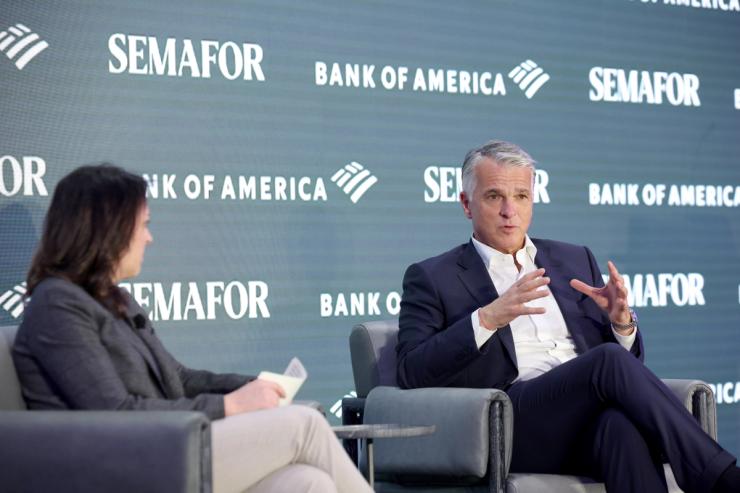The News
Regardless of the outcome of the Nov. 5 US presidential election, the head of the world’s largest private bank said he hopes the next president will “contribute to resolve some of the big issues on the geopolitical front,” particularly the wars in Ukraine and the Middle East.
“I’m far from trying to predict what’s going to happen,” UBS chief Sergio P. Ermotti told Semafor’s Liz Hoffman, at the World Economy Summit in Washington, DC on Thursday. “What I do hope is that whoever wins can contribute to resolve some of the big issues on the geopolitical front.”
“We have very dangerous developments, both in Ukraine and Russia. When you look at the Middle East and you look at what happened in Asia, one cannot be complacent,” he said. “We need to have a little degree of direction and stability, and so hopefully, whoever wins can bring that to the table.”
However, he stressed, UBS is “happy and able” to work with all governments. A global bank located in Switzerland, UBS relies on the US for a significant portion of its business. More than half of its customers are located in the country.
Previously serving as UBS’ CEO for the nine years up to 2020, Ermotti returned to the role in April 2023 after the bank completed an emergency takeover of its rival Credit Suisse, which it is now working to integrate.
While the US economy was able to recover from the pandemic more quickly due to the government’s “decisive” action, Ermotti said, Europe’s economy has fragmented as its populations increasingly rely on government subsidies.
Earlier this year, Ermotti called out European regulators for limiting the growth of European banks after the 2008 financial crisis. As a result, he said, US banks now dominate the sector and Europe is left playing catch-up.
Know More
Looking ahead, Ermotti said global “protectionism” was a concern, particularly for emerging economies that rely on investments from more developed nations. “What we see is the inability of capital to go to those areas that need the most attention, and create value for more fragile economies,” he said. “Protectionism, if it goes too far, may create collateral damages” for both local economies as well as the banks that serve clients across the globe.


